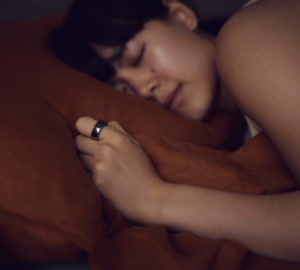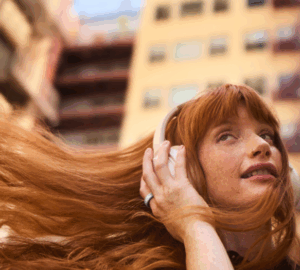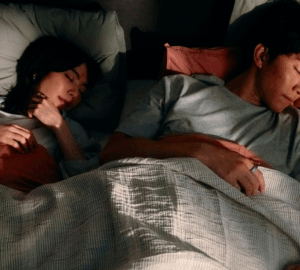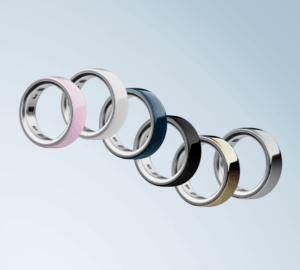With summer officially in full swing, you’re probably more focused on planning your next vacation, pool day, or barbecue menu than you are scheduling time for sufficient sleep. (And that’s okay! At Oura, we don’t want you to stress about sleep.)
To better understand our members’ collective sleep habits, we looked at anonymized and aggregate Oura data. Check out the findings below, which show how Oura members’ sleep habits and activities of choice change during the summer months.
Summer does seem to have a negative impact on Oura members’ sleep trends, such as lower sleep duration, increased latency, and less REM sleep. However, it’s not all doom and gloom, and soaking up summer fun doesn’t mean your shuteye has to suffer. Keep reading for six science-backed strategies to sleep well, all summer long.
How Oura Members’ Sleep Changes During the Summer
The longer days of summer mean more hours of sunlight, with daytime sunlight reaching its peak on summer solstice at the end of June.
When the days are longer and warmer, your sleep habits are likely to change as well. This shift in sleep habits is supported by Oura member data trends, shown below.
- Total sleep duration decreases by 16 minutes among Oura members.
- Oura members’ Sleep Scores decreased by an average of 3 points.
- Sleep latency, the amount of time it takes to fall asleep, increases by 2 minutes.
- One fun quirk? Oura members in our home country of Finland tend to see their total sleep increase in July and August, a time when many are on extended summer holiday.
- Overall, member spend less time in REM sleep. A potential reason: When the sun sets later, we tend go to bed later and may have to get up earlier. This shifts the balance of our sleep stages towards deep sleep and away from REM sleep, which tends to occur more in later sleep cycles.
- The number of members tagging “Hot Bedroom” increases by over 125% in the summer months.
| Member Tip: To feel your best during the day, maintaining consistent sleep and wake times is key — tap into Oura’s bedtime guidance to fine-tune your habits. |
How Activity Changes During the Summer
In the summer, data reveals a slight increase in the frequency of activity overall among Oura members. Water-based “paddle sports” — e.g., canoeing, kayaking, rafting, and stand-up paddle boarding — emerged as the activities with the highest change in frequency between summer and non-summer months, followed by swimming and surfing, notes Nicolas Beuchat, senior data scientist at Oura.
Unsurprisingly, we also observed that many Oura members enjoy travel more frequently in the summer months, when we see an increase in travel-related tags such as Vacation, Hotel, Travel, Car, and Airplane. Also unsurprising: These tags tend to have detrimental effects on members’ biometrics, including heart rate variability, resting heart rates, and Sleep Scores.
No need to cancel your well-deserved vacation though; the tips below can help you adjust and sleep soundly, wherever your summer adventures may take you.
6 Tips to Optimize Your Sleep in the Summer
Whether you’re dealing with a hot bedroom, too much travel, or late-night revelry around the holidays, your sleep doesn’t need to suffer. Here’s how to stay on track, even in the dog days of summer.
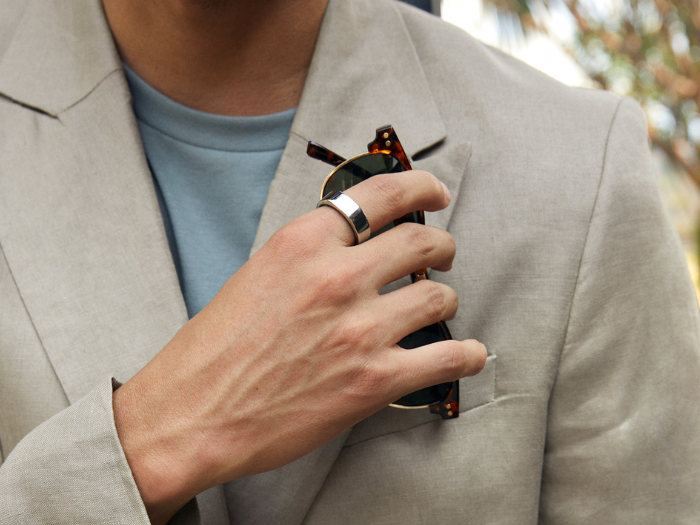
1. Cool it down.
Perhaps the most important thing you can do in the summer to ensure sounder shuteye: Lower the temperature.
The ideal sleeping temperature is around 65 degrees Fahrenheit (18 degrees Celsius). The reason? Your body temperature naturally decreases to release melatonin and initiate sleep, so cooling your room can give your body a head start.
If air conditioning is out of the question, try using a portable fan or cooling device, which delivers the added benefit of providing a whirring white noise in the background. Another habit that can help: Taking a warm bath 1-2 hours before bed can cue your body to wind down as well.
Also, make sure to opt for cooler bedding and clothing with breathable, light fabrics for summer, recommends Rebecca Robbins, PhD, Oura Advisor and Assistant Professor of Medicine at Harvard Medical School: “Choose pajamas that are made from breathable fabrics that wick moisture, or, if you’re comfortable, wear nothing at all!”
RELATED: 5 Ways to Upgrade Your Sleep Hygiene
2. Adjust the lights.
“As the sun sets later, you may experience a delay in when you feel sleepy as well,” Robbins says. “To encourage your body to produce melatonin, your body’s sleepiness hormone, try making your sleeping environment as dark as possible to help your body wind down.” This means powering down electronics, dimming the light, and closing the curtains.
3. Get the right kind of light.
Make sure to get exposure to morning sunlight when you wake up, as well as in the afternoon when you may experience a slight dip in alertness. “Walking outside will give you a boost of energy and avoid having to rely on energy drinks or caffeine that may interfere with your sleep that night,” Robbins notes.
4. Stay hydrated.
Drink plenty of water and other liquids throughout the day, especially during periods of physical activity or high heat. Going to bed thirsty not only keeps you up — dehydration affects body temperature regulation, interferes with the sleep-wake cycle, and shortens the total amount of sleep you get.
5. Give meditation a try.
“If you toss and turn from being too hot, get out of bed, sit on the floor or a chair, and practice mindfulness meditation or progressive muscle relaxation (clenching and releasing muscle groups),” Robbins suggests. This practice can not only cool off your body, but also calm your mind in preparation for sleep.
| Member Tip: In the Oura App’s Explore content, you’ll find a growing library of guided meditations, specifically designed for sleep. |
6. Preempt jet lag.
Take a stand against the effects of jet lag by preparing before a long flight. “The best strategy for long-haul travelers is to prepare,” Robbins says. “Gradually adjust your bedtime based on the destination time zone, and consider melatonin to help you sleep when needed.”
READ MORE: 7 Science-Backed Strategies to Manage Jet Lag
About the Oura Experts
Nicolas Beuchat is a Senior Data Scientist at Oura. He is from Lausanne, Switzerland. He has a background in bioengineering and bioinformatics from EPFL and Harvard Medical School where he studied motor adaptation and motor learning. Prior to joining Oura, Nicolas worked in a wide range of industries, from financial institutions, logistics, and most recently as a co-founder of a real estate tech startup.
Rebecca Robbins, PhD, is Sleep Scientist at the Brigham and Women’s Hospital, Assistant Professor of Medicine at Harvard Medical School, and longtime member of Oura’s Medical Advisory Board. Her research uses marketing and novel communication tools and technologies (i.e. smartphones and other mobile devices) to design persuasive behavior change interventions to improve sleep and circadian health.
For these analyses, Oura’s science team looked at member data from summer 2022, defined here as June through September. The activities analysis selected activities with high enough participating to draw conclusions, and excluded the “other” category. Data was collected from a selection of northern hemisphere countries around the world, but excluded a number of southern U.S. states that experience less seasonal deviations (Alabama, Arizona, Arkansas, California, Florida, Georgia, Hawaii, Louisiana, Mississippi, Oklahoma, South Carolina, Texas).







